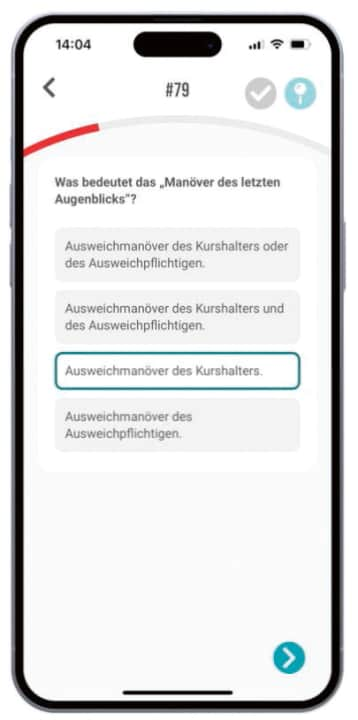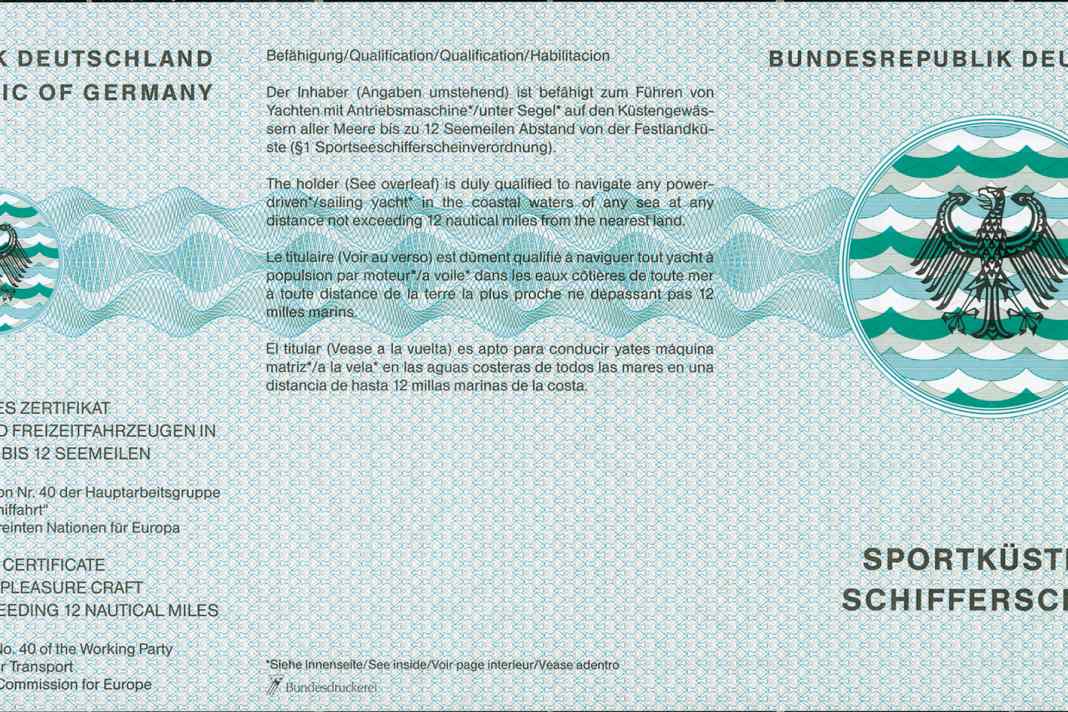




E-learning portal



In cooperation with the Association of German Sailing Schools (VDS), Delius Klasing Verlag has developed learning software for the acquisition of recreational boating licences, which is now used by more than 250 training centres in Germany. In the virtual course, an instructor explains all topics including navigation. Nautical chart excerpts and the official question catalogue complete the programme. The e-learning portal can be accessed by registering with a recreational boating school. You can then learn either in addition to the classroom lessons or exclusively with the programme at home. Some schools are available for telephone counselling - nobody should despair of the theory. The exam questions can be practised on the go using an app.
- Further information: bootsfuehrerschein-portal.de
Boat licence app

This app helps you prepare for the theory test for recreational craft licences and radio certificates. The free app contains a selection of questions as well as an exam and practice sheet. Test the app free of charge and use all functions. The desired licences with all official questions and the corresponding exam sheets can be activated directly from the app via an in-app purchase. Based on Sebastian Leitner's system, learning is optimised in the best possible way. When learning the question catalogues, the focus shifts to the questions that have not yet been learned, and the knowledge acquired is put to the test again at a greater distance.
- Further information: sbf-fragen.de
Books and questionnaires for the recreational craft licence





Further training




As described above, there are no standardised traffic regulations on federal waterways. Instead, different regulations take into account the special features of the respective area, and more far-reaching licences must also be observed. From April 2023, boats of less than 20 m in length (previously only up to 15 m) may be used on the Rhine with an inland navigation licence. For boats between 20 and 25 metres in length, you will need a sports licence on the Rhine, which also applies to other federal inland waterways. Proof of specific route knowledge is also required for certain stretches of the Rhine.
The recreational craft licence E is valid for recreational craft from 20 m to less than 25 m on all federal inland waterways except the Rhine. Anyone wishing to sail beyond the scope of the German Maritime Waterways Ordinance can do so formally with a recreational craft licence. However, more theoretical knowledge and practical experience cannot hurt, and you can acquire additional licences.
Read more about this:
The internationally recognised SKS is accepted as an official, recommended licence for the operation of motorised recreational craft in coastal waters within the 12 nautical mile zone. It is mandatory for the operation of commercially used recreational craft. The recreational sailing licence (SSS) is an official boating licence that entitles the holder to sail yachts in coastal waters (up to 30 nautical miles) and is of particular interest for commercially operated boats.
The Sport Offshore Skipper's Licence (SHS) is the highest official licence in Germany and qualifies the holder to skipper yachts with motor and sail propulsion in worldwide waters. It is particularly mandatory for skippers who wish to operate commercial pleasure craft in international shipping.
Special rules apply on Lake Constance, an international body of water with its own shipping regulations. Here, motorboats over 4.4 kW (6 hp) require a Lake Constance skipper's licence, category A. If you already have a German pleasure craft licence, you can apply for a holiday licence for one month, which allows you to use Lake Constance. The official driving licences are recognised abroad; however, driving licences obtained there by German citizens are generally not valid in this country.
The VHF radiotelephone licence for inland navigation (UBI)

Without exception, licences are required both to operate a boat with radio equipment and to participate in radio communication. As with driving licences, a distinction is made between inland and sea. The sports schools also offer corresponding preparation courses for the VHF radiotelephone licence for inland traffic (UBI) and the restricted radio operating certificate for the sea (Short Range Certificate, SRC).

